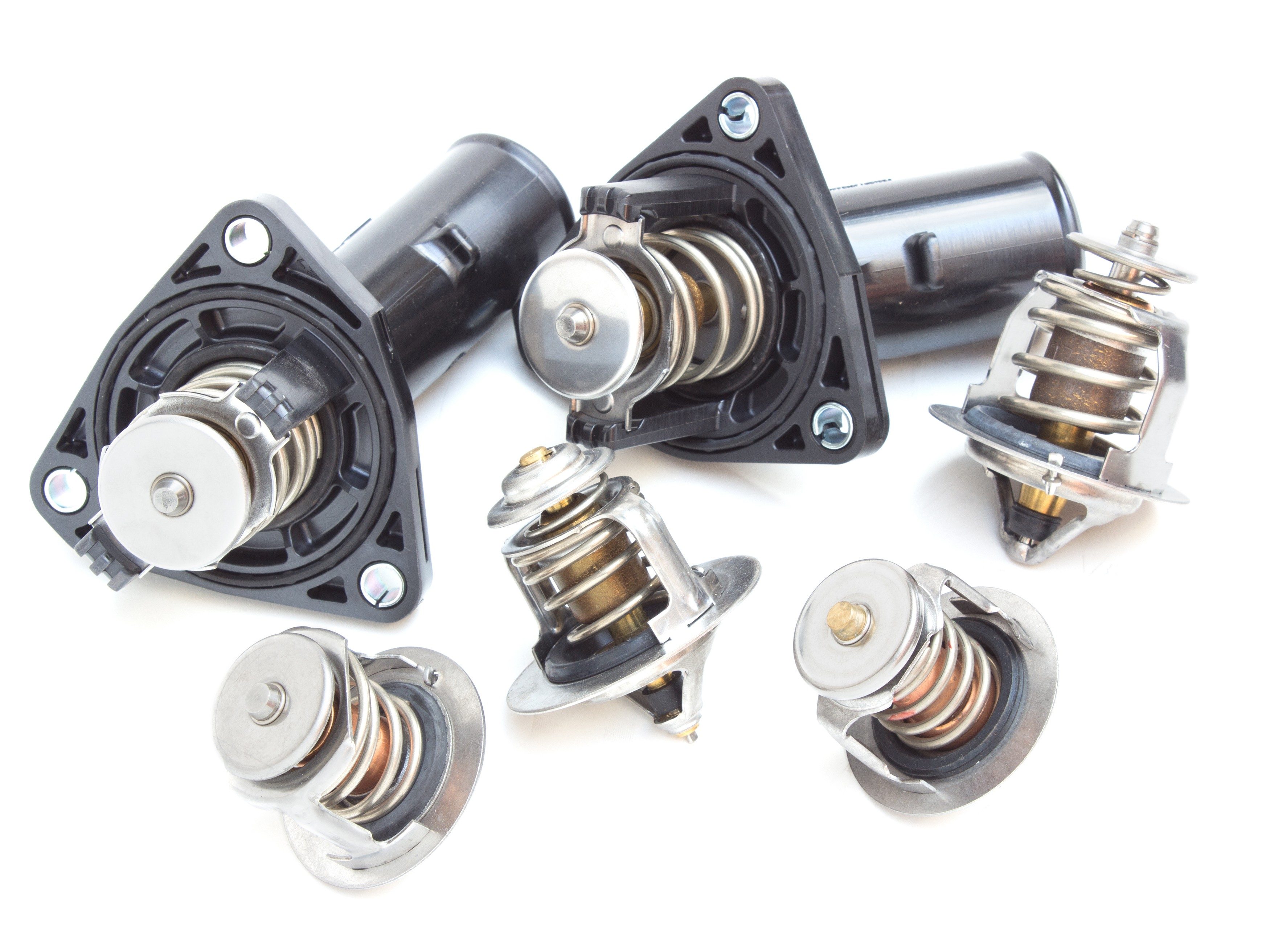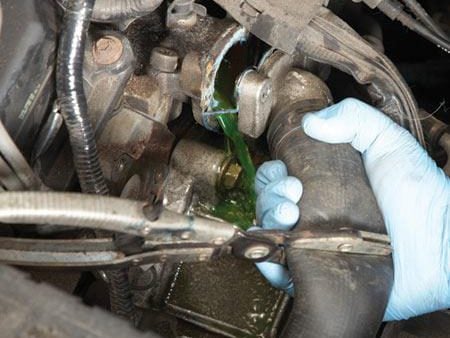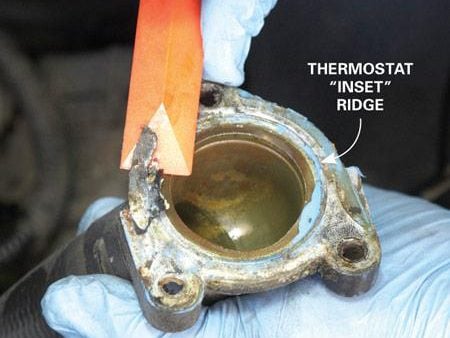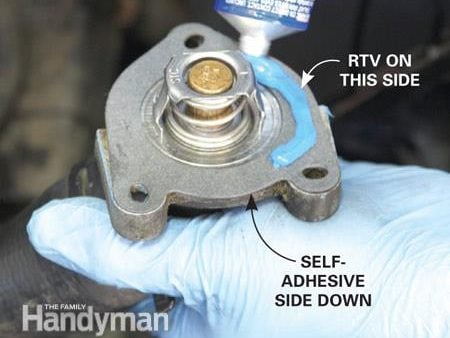
Do-It-Yourself Car Thermostat Replacement
In most cases, the cause of an overheating or no-heat condition in your vehicle is a faulty thermostat. And since a new “T-stat” costs only about $8, it makes more sense to replace it than to spend hours diagnosing the problem. If that doesn’t fix it, at least you’re only out about two hours.
Pick up a new T-stat and gasket, as well as RTV sealant, fresh coolant (to top off the system) and hose-clamping pliers at an auto parts store. And while you’re there, ask the clerk for the torque specs for the gooseneck bolts. Then gather up your metric sockets, a plastic scraper and a drip pan. Slide the drip pan under the engine to catch the spilled coolant.
Time it will take: One day
Complexity: Simple
Cost: Under $20
Tools required:
Socket/ratchet set
Rags
Hose-clamping pliers
Plastic scraper
Drip pan
Materials required:
T-stat
Gasket
RTV sealant
Coolant

Step 1: Remove the Old Thermostat
The T-stat is usually located near the top of the engine under a “gooseneck” housing attached to the upper radiator hose. If yours isn’t there, consult a shop manual to locate it. Remove the two or three bolts that hold the gooseneck in place and remove the T-stat.

Step 2: Clean Both Mating Surfaces
Next, use a plastic scraper to remove the old gasket and any sealing compound, cleaning both the engine and the gooseneck sealing surfaces. Dry the surfaces with a rag.

Step 3: Install the New Thermostat and Gasket
If the parts store gave you a plain gasket, coat one side with RTV sealant (self-adhesive gaskets don’t need sealant). Then, install the T-stat and gasket, placing the new thermostat in the recessed groove in either the engine or gooseneck (air bleed toward the top). Hold it in place with a self-adhesive gasket. Then apply a bead of RTV sealant. If the old T-stat used a rubber O-ring instead of a gasket, lubricate the new one with fresh coolant before you insert it. Reinstall the gooseneck and top off the coolant.
Check out more do-it-yourself car maintenance tips!
Explore Reader’s Digest Cars.